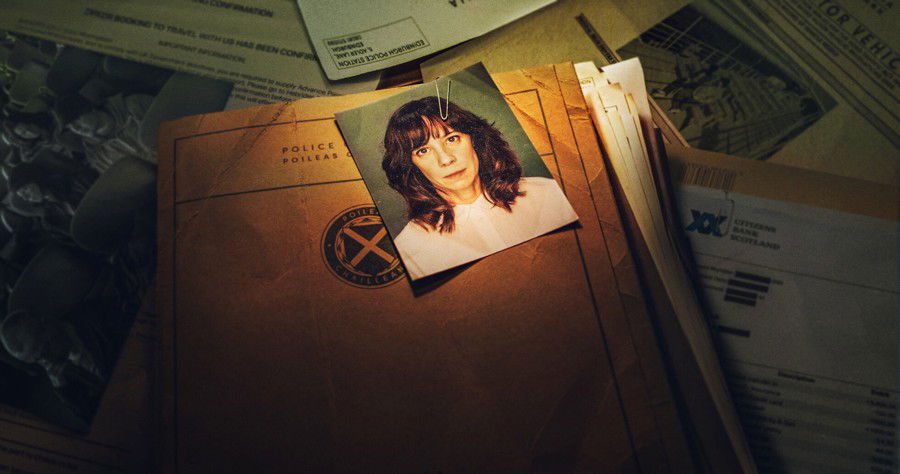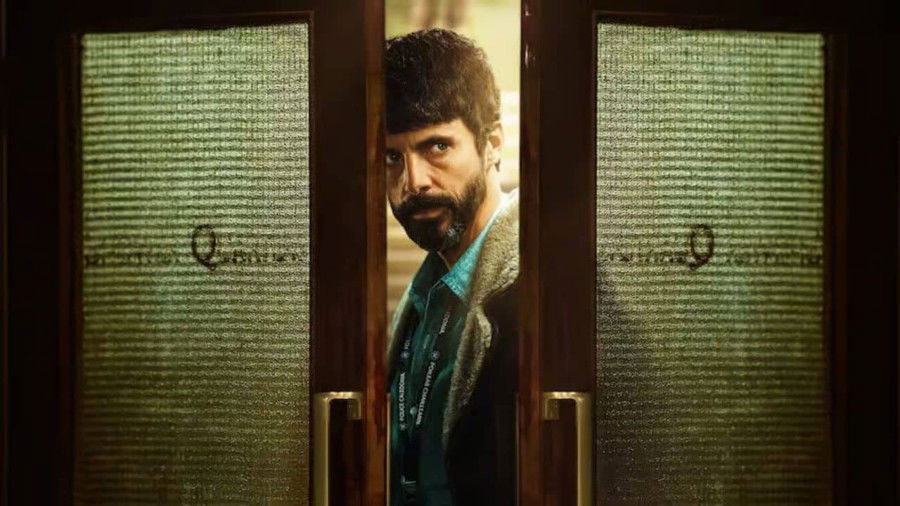Dept. Q: exploring the ups and downs of the series that recently landed on Netflix
At the end of May, the series Dept. Q arrived on Netflix. A production within the crime investigation genre, the show features nine episodes. It has consistently ranked among the top 10 most-watched titles on the platform, which made me curious to understand why it became so popular and if it truly deserves the attention... or in short, if it’s worth a play.
First, it’s essential to highlight that investigative series are often highly successful. Netflix already has a solid roster of popular and well-regarded titles in the genre. Notable examples include Mindhunter, The Sinner, and Criminal: UK. This establishes the genre's long-standing appeal on the platform. If the format works, it’s evident they will continue investing in it.
Check out the trailer for Dept. Q:
Dept. Q is based on a series of crime novels by Danish author Jussi Adler-Olsen, which naturally piques the interest of fans of his books who want to see the adaptations on screen. The series was adapted by Scott Frank, a screenwriter with two Oscar nominations for Out of Sight (1998) and Logan (2017). Although he didn’t secure a win for either, he earned an Emmy in 2021 for The Queen’s Gambit, another Netflix success. All these credentials provide Dept. Q with strong credibility, creating buzz and stirring curiosity among viewers.
The plot follows Detective Carl Mørck, played by Matthew Goode, a man who recently endured a traumatic event during one of his investigations. He was shot during duty; one of his colleagues was killed, and another was left paralyzed. After taking some time off, Carl returns to work to find that there have been changes in his department and that he’s been demoted.
Now heading a newly formed cold case division known as Dept. Q, Carl leads a team of misfits: Akram Salim (Alexej Manvelov), Rose (Leah Byrne), and his former partner Hardy (Jamie Sives), who was also shot and is now confined to a wheelchair. Together, they reopen the case of prosecutor Merritt Lingard’s (Chloe Pirrie) disappearance, which occurred four years earlier.

Throughout the series, we follow two main perspectives: the investigators’ journey and Merritt’s personal ordeal. On one hand, the team discovers serious state security failures and gradually realizes they are being manipulated.
Their efforts expose corruption within the police, which is largely controlled by external interests. Meanwhile, Merritt remains alive but imprisoned in captivity. Both the reasons for her abduction and the people involved are slowly unveiled across the nine episodes.
Why you should watch Dept. Q: its strengths

One of the standout features of the series is its concise structure, comprising nine episodes. However, some episodes exceed an hour in runtime, so keep that in mind. The genre itself is the show’s strongest asset, likely being the main reason for its widespread appeal. Additionally, as previously mentioned, it features a renowned screenwriter with a strong track record.
The show’s positive reviews often highlight its dark atmosphere and the emotional depth of the characters. Matthew Goode’s performance as Carl Mørck is particularly noteworthy. He portrays the detective with nuance, showing the weight of his recent tragedies.
Moreover, the interactions between Mørck and his team members are well-developed, with moments that are compelling, insightful, and occasionally even humorous.
Despite the darker and more somber tone, Mørck’s sarcastic nature draws comparisons to Dr. Gregory House (Hugh Laurie) from House, M.D.. His relationships with coworkers often exhibit an abrasive dynamic, which appears to be his way of channeling the frustration from his demotion while still holding onto some semblance of authority.
Dept. Q avoids the conventional clichés found in many investigation-centered shows and crime dramas, instead focusing on the psychological depth and personal struggles of its characters.
In summary, the series places a significant emphasis on its characters’ personal arcs. Each one is thoughtfully explored and well-utilized. If you enjoy this type of character-driven storytelling, Dept. Q delivers exactly that.
The dark side for some viewers

Dept. Q is a double-edged sword. While its strengths may captivate some viewers, they might also drive others away. The first episode sets a strongly intriguing premise. The detectives arrive at an active crime scene, encounter the killer, and narrowly miss capturing him as he escapes. It immediately makes you think, “I need to see how this unfolds!”
However, the problem lies in the rest of the series, which doesn’t follow through on the pace or momentum introduced in its pilot. Instead, the tone becomes slower, more melancholic, and overly dramatic for a crime series. Crime shows usually call for action and a faster tempo, which this production lacks. While Dept. Q pushes boundaries and avoids many classic clichés in an attempt to stand out, it takes this approach to such extremes that it alienates viewers who seek more dynamism in their storytelling.
Merritt’s captivity is shown, but the viewer isn’t drawn to feel much empathy for her situation. Meanwhile, we root for Mørck to crack open these cold cases and reclaim his self-worth, but that’s the extent of it. Akram, his assistant, surprisingly comes across as a more engaging character. He displays a greater sense of purpose and motivation compared to the protagonist himself.
The slow pacing could have been offset with better storytelling elements. For example, delving deeper into the backstories of the characters, exploring internal developments within the police department, or even expanding the broader web of corruption and crime. Anything to make the dynamic of the narrative more engaging. However, the series remains laser-focused on its characters’ present struggles and traumas, offering little beyond that.
Watch only if it’s your style
Personally, I wouldn’t recommend Dept. Q to just anyone. You’re likely better off revisiting older crime-based series, which are generally more consistent and well-aligned with the expectations of the genre. For instance, if a series sets out to be a drama, it should fully embrace it, like Unbelievable. That show tells the story of a woman falsely accused of lying after reporting a @@@@. Years later, similar cases surface, leading two determined detectives to reopen her case and pursue the truth with intensity and focus.
What I mean is that Dept. Q struggles with its premise. It attempts to juggle too many elements, such as crime, corruption, and internal dynamics within the precinct, but barely explores these themes in depth. Combine that with its sluggish pacing (slow even at 1.5x playback speed) and you get a series that appeals primarily to fans of psychological drama with dense character studies and a relaxed narrative tempo. The absence of frequent action scenes or fast resolutions makes this a production more about atmosphere than momentum.
If that matches your preferences, give it a try. Otherwise, it’s best to move on to the next title on your watchlist.
See you in the next article!













— 评论 0
, 反应 1
成为第一个发表评论的人